I salute Queen Barbara Stanwyck, Princess Ginger Rogers, and other beloved members of Hollywood Royalty,
Don't wanna be here? Send us removal request.
Text
Fartspam on top discord.gg/spamming
Fartspam on top discord.gg/spamming
0 notes
Text
Fartspam on top discord.gg/spamming
Fartspam on top discord.gg/spamming
0 notes
Text
Fartspam on top discord.gg/spamming
Fartspam on top discord.gg/spamming
0 notes
Photo
Actually a fairly decent movie. Greta and Douglas are good, although not up to the chemistry of Ninotchka, which is why Constance Bennett steals the show.
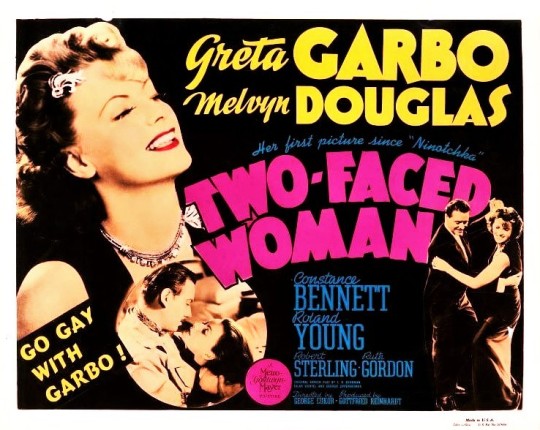
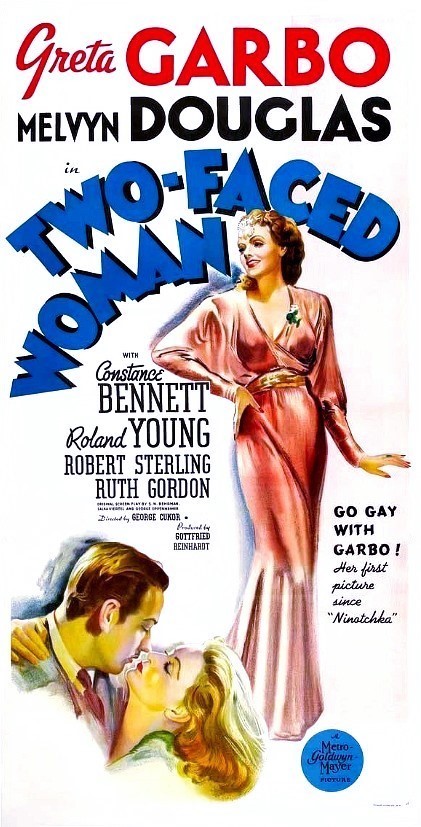
A vintage lobby card and movie poster created to promote the MGM/George Cukor romantic comedy Two-Faced Woman, 1941. Film legend Greta Garbo portrayed a woman posing as her own fictitious twin sister in the movie, wooing her wayward husband (played by Melvyn Douglas) in an effort to steal him back from his former girlfriend (played by Constance Bennett). Condemned by the then powerful Catholic Legion of Decency for depicting what they deemed an “immoral attitude toward marriage and its obligations, impudently suggestive scenes, dialogue, and situations, and suggestive costumes", MGM pulled the movie from theaters and re-shot and edited some of the scenes (without the involvement of director George Cukor, who angrily objected to the Legion of Decency’s demands and understandably declined to participate). After the film was re-released, it received tepid reviews from critics and modest returns at the box office, which wasn’t helped by the expensive re-shoots forced upon the studio. This was Greta’s final film before stepping back from her acting career at the age of 36, and the controversy surrounding this movie has been suggested by film historians as at least a partial reason for her decision. Though she attempted to get a couple of films off the ground in later years and stage a comeback, financing fell through for various reasons and she never appeared on the screen again. While the word “gay” in the context of Two-Faced Woman’s promotional material was used to suggest the light-hearted frivolity of the movie’s plot and also counter Garbo’s perceived public image as being somewhat dour, it’s worth noting that Greta, by numerous reliable biographical accounts, was bisexual, and the film’s director, George Cukor, was openly gay around his close Hollywood friends and work colleagues, something which would’ve further unjustly inflamed the uptight Legion of Decency had either celebrity’s personal lives been public knowledge at the time.
34 notes
·
View notes
Photo
Some don’t care for Red Salute, but I love it. Probably because I’ve always loved Robert Young.
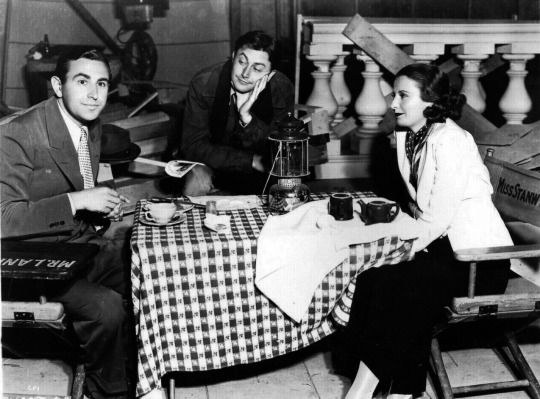
38 notes
·
View notes
Photo

Colorized photo of Barbara Stanwyck in a promo shot for Gambling Lady (1934).
Sorry for the logo, but one of my colorized photos was copied without credit and then put up for sale on Ebay -- and it was from my earlier efforts and not even very good.
32 notes
·
View notes
Photo
Barbara looks a lot like my mother in this photo. My mom had darker hair and brown eyes, but the resemblance is still there. That may be part of the reason my mom liked Barbara so much.
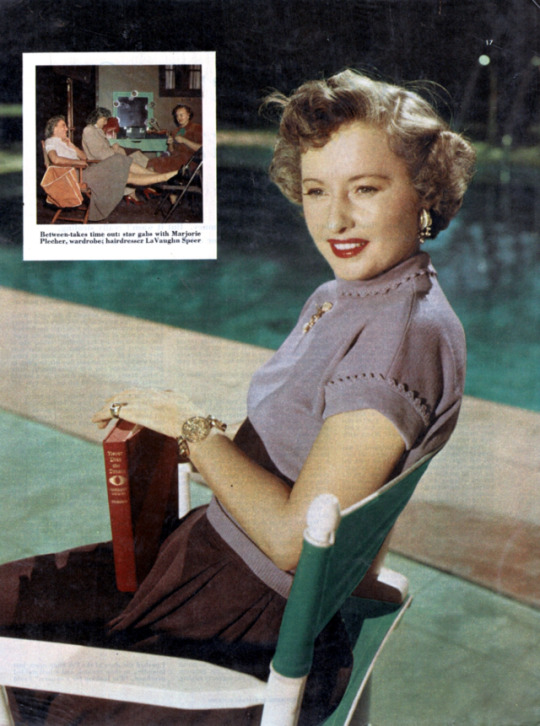
21 notes
·
View notes
Photo
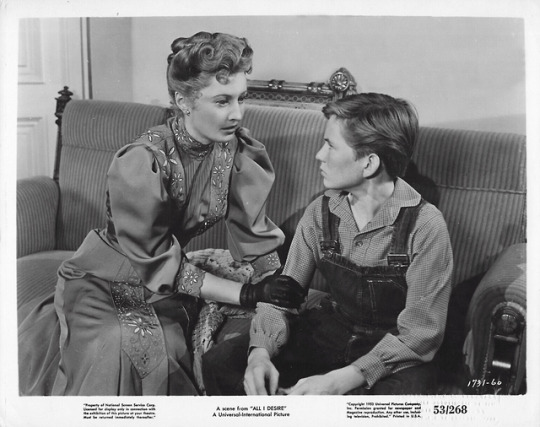
Barbara Stanwyck with Billy Gray in All I Desire (1953).
The caption lists this scene still as number 53 of 268. I want to see the other 267.
6 notes
·
View notes
Video
Always my favorite singer. Forever, Billie.
youtube
Billie Holiday sings the Johnny Green/Edward Heyman classic Body and Soul, recorded for Verve records on January 7th, 1957. Remembering the legendary Lady Day… April 7th, 1915 - July 17th, 1959
18 notes
·
View notes
Photo
Barbara Stanwyck at her swimming pool in the early 1940s.
OMG
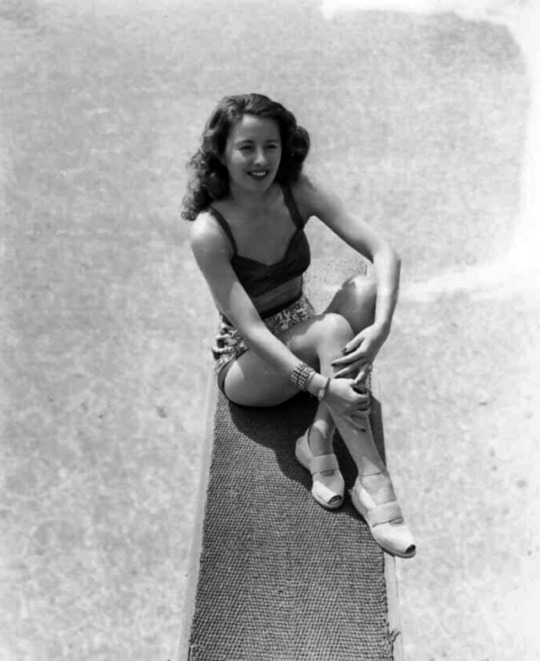
62 notes
·
View notes
Photo
Holy communion! The communion scene in Thorn Birds tops the St. Louis Cathedral scene in Saratoga Trunk for the most irreligious scene ever filmed.
Barbara’s thoughts were obviously not on the depth of the sacrament.


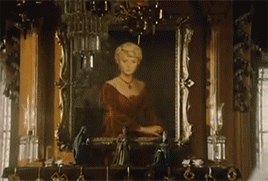




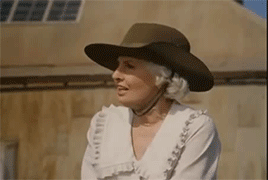
24 notes
·
View notes
Photo
Goodbye, Georgia. You have been a sweet part of my life since MTM first came on the air when I was in High School.
We will remember you.
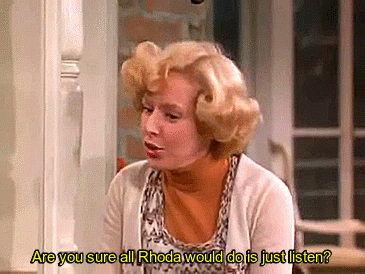

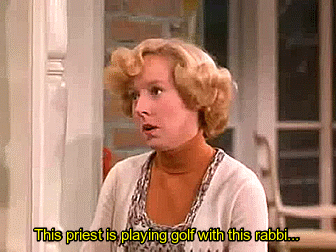
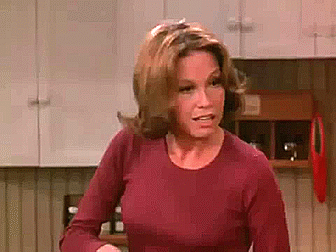
In memory of beloved character actress Georgia Engel, who has passed away at the age of 70. Born on July 28th, 1948 in Washington, DC, Georgia died on April 12th, 2019 in Princeton, New Jersey, but her passing wasn’t announced until late yesterday. Best remembered for her portrayal of adorably ditzy Georgette on The Mary Tyler Moore Show in the 1970s (as seen above), Engel also had memorable recurring roles on Coach, and in more recent years on Everybody Loves Raymond and Hot in Cleveland. She will be missed. ❤
59 notes
·
View notes
Photo
I love this movie. Myrna Loy is very unMyrna like as a blonde. Irene Dunne is the star of the film, and manages to rip my heart out and hand it back, as she so often did in her early films.
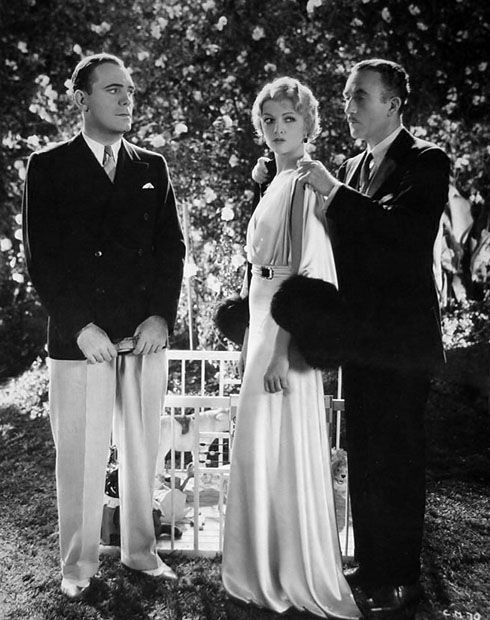
Pat O’Brien, Myrna Loy, and John Halliday in Consolation Marriage (1931).
76 notes
·
View notes
Photo
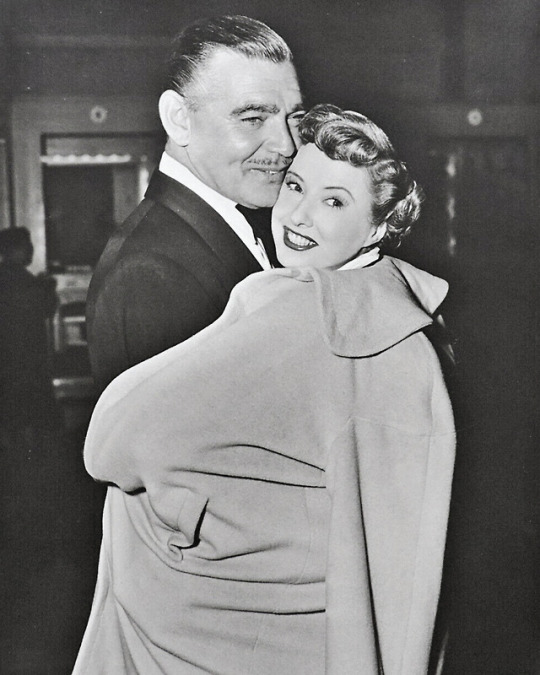
Clark Gable keeps Barbara Stanwyck warm between scenes of To Please A Lady (1950).
5 notes
·
View notes
Text
I fell in love with this movie the first time I saw it. Irene Dunne had save even a bad picture, but this is, in fact, a very good picture. The real impact of the movie is how it shows the impact of real love versus young fantasy. Sharing the sorrow of their lost first romances, and finding joy again together, creates a relationship with far more substance than anything they had with their lost loves.
When each has the chance to take everything they always wanted, they happily choose each other instead.
Another joy for me was seeing a blonde Myrna Loy. It took movies awhile to figure out what to do with Myrna. She went from exotic to blonde before they realized Mryna should just be Mryna.
Consolation Marriage by Kim Luperi
I will watch the effervescent Irene Dunne in anything, no matter the role—especially if it’s a pre-Code or comedy; she exudes a natural charm that makes her performances satisfying. So, choosing to view CONSOLATION MARRIAGE (’31), an unfamiliar pre-Code dramedy, was a no-brainer for me. In the movie, Mary (Dunne) and Steve (Pat O’Brien) befriend each other while wallowing in misery after their respective sweethearts marry others. Their shared heartbreak and burgeoning friendship lead them into matrimony… on the condition that they are free to see other lovers, which makes things interesting as their feelings develop and their exes re-enter their lives.
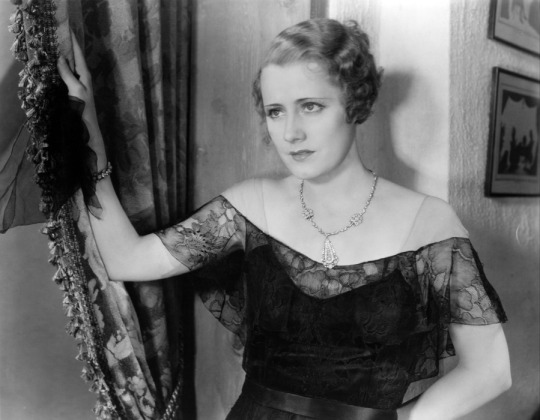
Aside from my self-professed love for Dunne, I appreciated this movie’s progressive portrayal of relationships before the inevitable happy ending, and I actually found the movie more enjoyable than anticipated, given its rather mediocre reviews from modern audiences. In fact, surprises abounded both within CONSOLATION MARRIAGE and outside the film, specifically having to do with O’Brien and Dunne’s chemistry and the movie’s censorship history.
The unexpected commenced right when I spotted O’Brien’s name. ‘What an odd pairing,’ I thought. At the time, I was more familiar with the actor in tougher, snarkier roles (1933’s BUREAU OF MISSING PERSONS, for instance) and had never thought of him as a romantic lead. Well, CONSOLATION MARRIAGE changed that, as O’Brien’s easy rapport with Dunne made them an absolutely delightful pair. Though classified as a drama, certain scenes in the picture, many occurring before they wed, played with a frothier air, which is where the leads’ wit shined and their chemistry became palpable—it really seemed like they were pals just having a grand old time. (Incidentally, Dunne and O’Brien were friends in real life, and Dunne was even godmother to O’Brien’s son, Terry.) To be honest, without Dunne and O’Brien’s proficiency in both drama and comedy, I’m not sure the script’s swings in tone or occasional sappiness would be as palatable as I perceived them to be.

Another revelation came with the fact that both Dunne and O’Brien made their Hollywood debuts in 1930, one year before CONSOLATION MARRIAGE hit theaters. Despite this movie receiving mixed reviews, outlets such as The New York Times and Film Daily made mention of the picture’s human quality, a point I would give credit for to the story, direction and certainly Dunne and O’Brien, who skillfully imbued their characters with those attributes so early in their respective careers.
An additional surprise arose when I opened the film’s Production Code Administration (PCA) file at the Academy’s Margaret Herrick Library. With adultery an expected outcome to this marriage of convenience, I was sure the Studio Relations Committee (SRC), the precursor to the PCA, would have cautionary words for this movie; I mean, doesn’t the fact that they invite each other to have an affair disrespect the sanctity of marriage? I guess not, because to my shock, no issue was taken with the portrayal of matrimony. In fact, the office bestowed the film a glowing review: “This picture is utterly charming from start to finish. The dialogue is fresh, amusing, whimsical while beneath this surface flippancy lies a human and appealing story made more real and vivid by the sincerity of the acting. Family audience.” Ironically, the movie faced more heat over the fact that verbiage pertaining to childbirth was so direct. The office recommended to edit the lines “We had a baby last week” and “You’re having a baby,” indicating the SRC found this natural, normal marital occurrence more insidious than the sham union of the central plot. It seems that the censors were blinded by the film’s charm; the characters could talk the talk, but since they didn’t walk the walk and eventually came around and respected their bond in the end, it was all good… apparently.
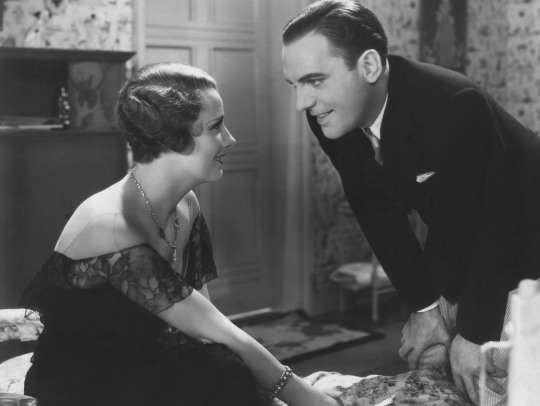
CONSOLATION MARRIAGE is by no means a perfect picture—the whole situation is a bit contrived, there are lulls in pacing and some maudlin dialogue—but the movie took me by surprise, and I was utterly taken with the charms of the performers, particularly Dunne and O’Brien. And to me, that’s usually worth more than textbook perfection.
37 notes
·
View notes
Photo
I thought I’d seen all the 1947 trip pictures, but not this one.
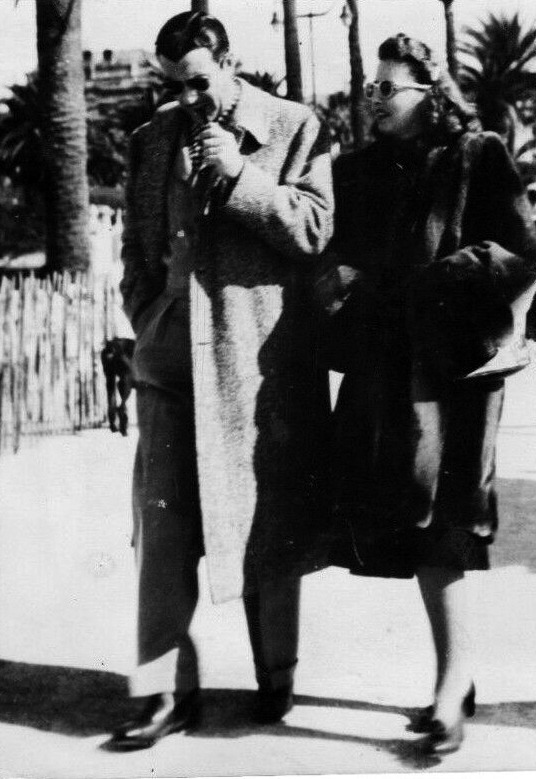
79 notes
·
View notes
Photo

Merry Christmas.
Barbara Stanwyck promo shot for Breakfast For Two.
44 notes
·
View notes